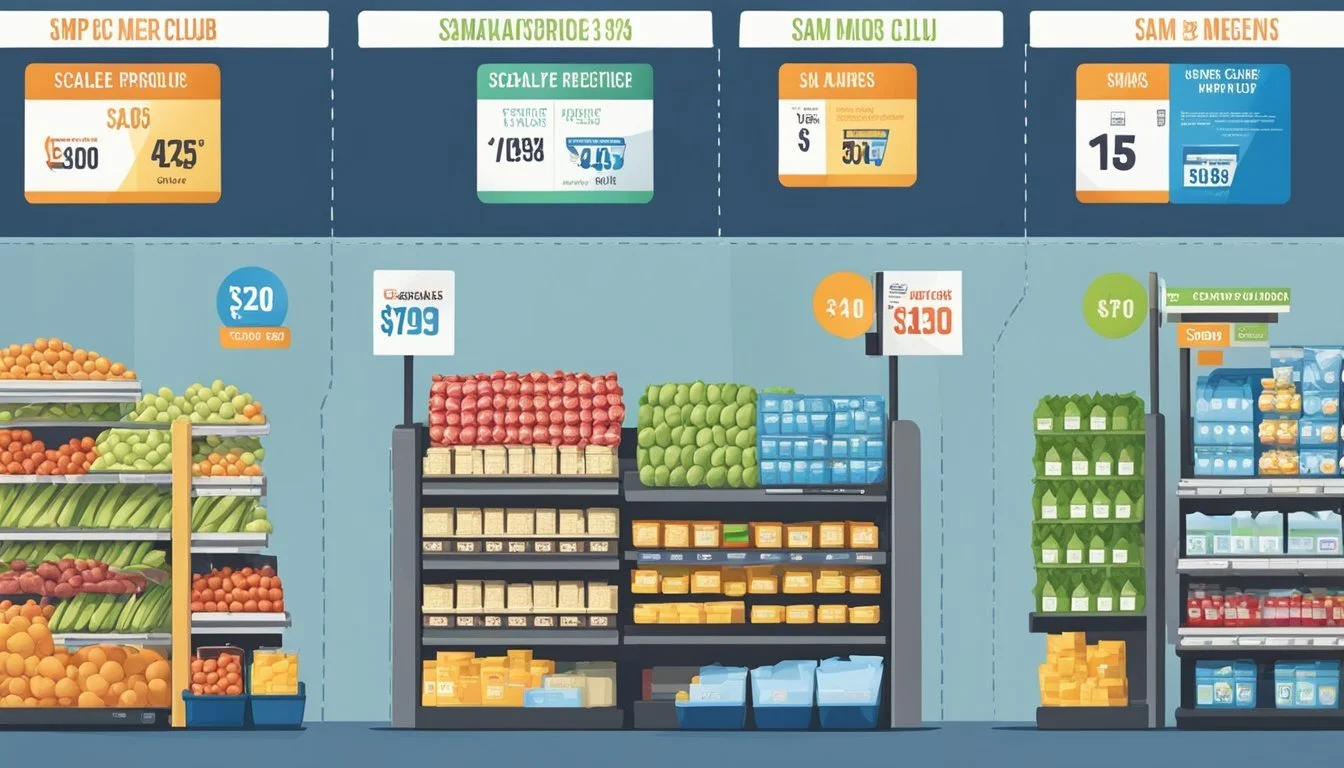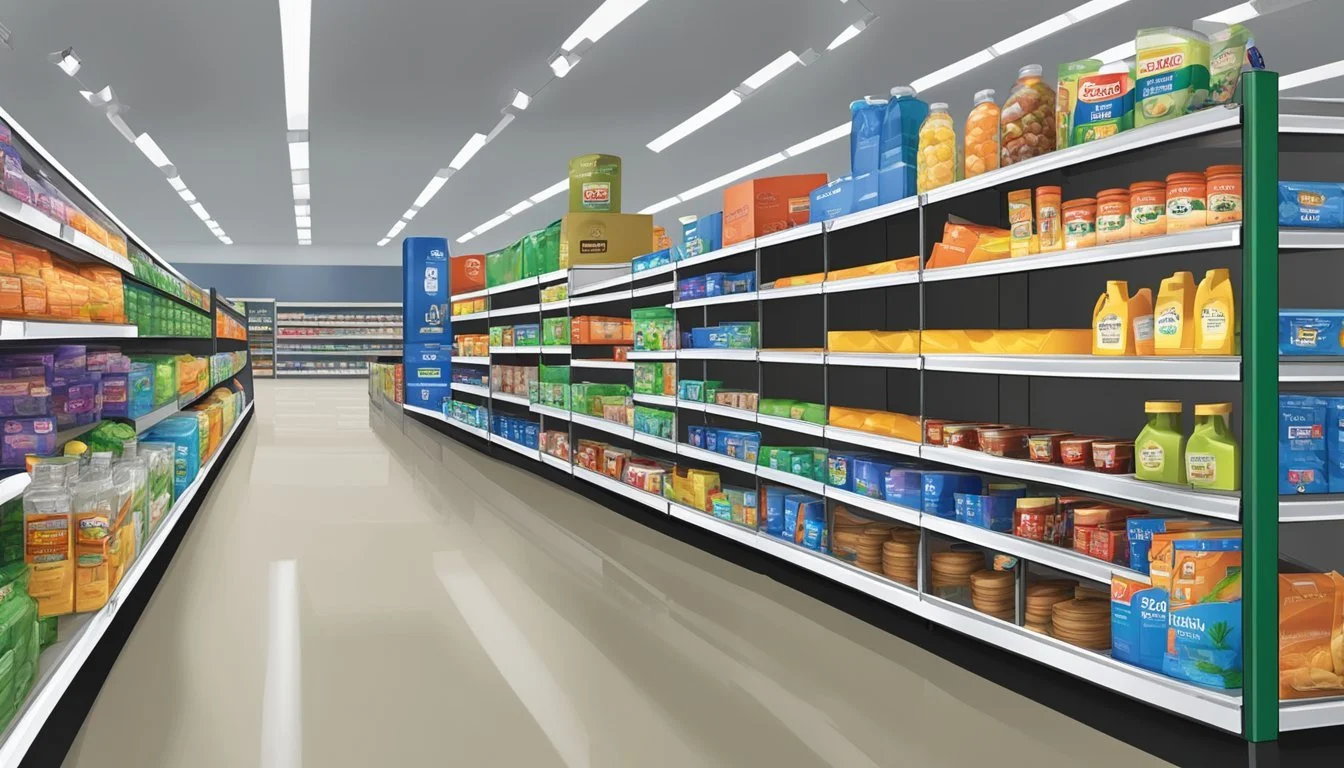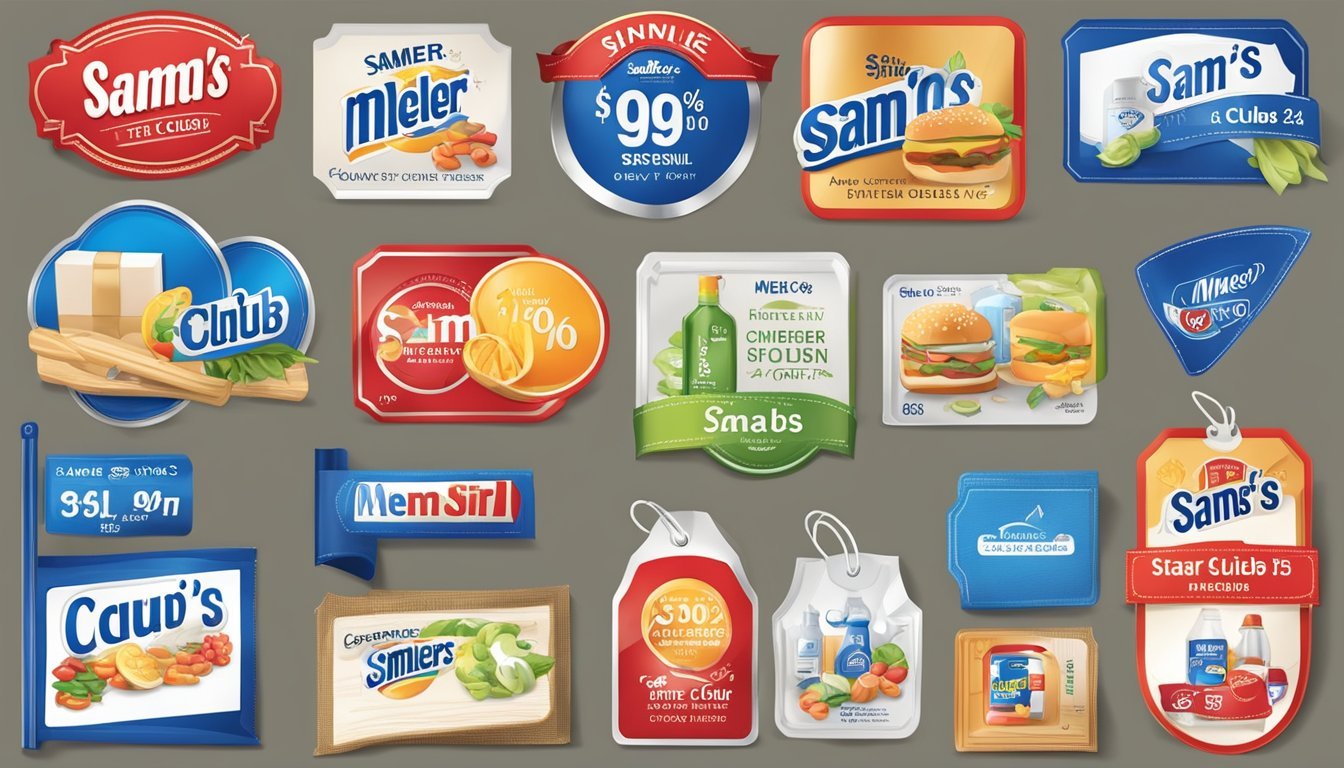Is Sam's Club Cheaper Than Meijer?
A Cost Comparison Analysis
Part of Our Grocery Store Guide with Details on Sam's Club Prices and Meijer Prices
When deciding where to shop for groceries and household items, cost plays a significant role for many families. Sam's Club, a membership-based warehouse club, and Meijer, a supercenter chain offering a variety of departments, are both popular shopping destinations. Consumers often compare prices at these retailers to determine which offers the greater value for their shopping needs.
Price comparisons between Sam's Club and Meijer show differing results depending on the products and the timing of promotions. Sam's Club, with its bulk purchasing options, may offer a lower unit price on certain items, making it an attractive option for those looking to stock up. Meanwhile, Meijer is known for having competitive sales, which can result in substantial savings for items that are on special.
Ultimately, the decision on whether Sam's Club is cheaper than Meijer depends on individual shopping habits and the types of items a family typically buys. While Sam's Club might provide savings for bulk purchases, Meijer could be more advantageous for its sales and the ability to buy in smaller quantities. Comparing prices, taking into account membership fees, and weighing the convenience of locations are all important factors for consumers to consider.
Understanding Warehouse Clubs and Supercenters
In the retail landscape, warehouse clubs and supercenters like Sam's Club and Meijer provide distinctive shopping experiences. These models focus on value for their members through various strategies including membership fees, product offerings, and customer services.
Business Models and Membership Fees
Warehouse clubs, such as Sam's Club, require customers to purchase a membership to shop. Sam's Club membership comes with an annual fee, offering tiered options such as the Plus membership which includes additional benefits like free shipping for online orders. In contrast, supercenters like Meijer provide a more traditional shopping experience with no membership fee, thus they cater to a broader audience without upfront costs.
Sam's Club Membership: $45 basic / $100 Plus per year
Meijer: $0 (no membership required)
Product Range and Store Layout
Sam's Club and Meijer both offer a wide range of products, from groceries, produce, dairy, frozen goods, to meat. However, they differ significantly in how they present these items. Warehouse clubs typically offer products in bulk, catering to businesses or large families, whereas supercenters like Meijer sell items in standard retail sizes. Supercenters may have a broader range of clothes, pharmacy, and essentials, and are more likely to mimic a traditional supermarket layout.
Products Sam's Club Meijer Groceries Bulk sizes Retail sizes Electronics Limited selection Wider variety Clothes Basic offerings Trendier styles Pharmacy Available Available
Shopping Experience and Services
Sam's Club offers unique services like the Scan & Go feature on its app, which allows a faster checkout process, appealing to those who seek convenience. Meijer, lacking such a specific app feature, competes by providing traditional cashier and self-checkout options. Both entities operate robust websites for online shopping, though Sam's Club's affiliation with Walmart potentially provides wider distribution coverage.
Sam's Club: Scan & Go app feature
Meijer: Traditional checkout styles
Consumer Perception and Brand Trust
Trust and perception play key roles. Warehouse clubs like Sam's Club benefit from the trust derived from their parent company, Walmart, while Meijer, though less known outside the Midwest, maintains strong regional loyalty. Competitive entities like Costco, Amazon, Target, Aldi, and Trader Joe’s impact consumer choices with their brand trust, each carving out niches in price competitiveness and product quality within the market.
Sam’s Club: Benefits from Walmart’s brand trust
Meijer: Strong regional brand trust
Price Analysis
This section is focused on a detailed price analysis between Sam's Club and Meijer, considering aspects such as bulk purchasing, everyday prices, available discounts, and how membership fees influence overall savings.
Bulk Purchase Economies
Sam's Club typically offers significant savings for bulk purchases. Members can save money on items like ground beef, milk, and Cheerios by buying in larger quantities. This contrasts with Meijer, which generally sells products in standard retail sizes. For consumers purchasing for large families or businesses, Sam's Club can often provide lower prices per unit.
Comparison of Everyday Prices
When comparing everyday prices of items such as bananas and milk, it's reported that Meijer offers competitive pricing comparable to large discount retailers. Surveys suggest that prices at Meijer could be approximately 11% lower than the average, potentially offering better prices for individual items compared to Sam's Club non-bulk prices.
Deals and Discounts Offered
Both retailers offer various deals and discount opportunities, which can affect the overall price. Sam's Club may have an edge in this area due to exclusive member's only discounts and instant savings on a variety of products. Meijer, on the other hand, is known to offer good sales, clearance items, and coupons that could provide significant savings without the need for a paid membership.
Impact of Membership Costs on Savings
The cost of a Sam's Club membership should be factored into the savings analysis. To truly benefit from Sam's Club's low prices and bulk deals, the annual membership fee must be offset by the amount saved. If the consumer shops frequently and buys in bulk, the fee may be justified by the substantial savings garnered. In contrast, Meijer does not require a membership, making it potentially more appealing for those looking to avoid additional fees when seeking savings and sales.
Product Quality and Selection
Analyzing the product quality and selection at Sam's Club and Meijer reveals distinct offerings in terms of perishables, private label goods, and the availability of specialty categories. Shoppers have different experiences while exploring the variety and quality of products at these two retail giants.
Perishables and Fresh Produce
At Sam's Club, customers can expect bulk quantities of perishables including fruit and vegetables, which often appeal to buyers looking for value in larger volumes. The emphasis is on economical packaging rather than individualized selections. In contrast, Meijer is known for a wide array of fresh produce, with a focus on freshness and quality, which may cater to customers seeking smaller, more frequent purchases of fresh items.
Private Label vs. Brand Names
Both retailers offer their own private labels which often provide cost savings over national brand names. Sam's Club's Member's Mark and Meijer's own brand lines feature a range of groceries, from pantry staples to canned goods. However, consumers may find a variation in quality, with some shoppers expressing preference for Meijer's store brands for certain items due to perceived quality differences.
Availability of Specialty Categories
Individuals with specific dietary needs are likely to find dedicated sections at Meijer for organic, gluten-free, and vegan products, reflecting a commitment to a broader consumer base. Sam's Club also supplies an assortment of these specialty categories but given its warehouse nature, the selection may be less diverse. However, both stores endeavor to cater to the evolving preferences for specialized grocery categories.
Convenience and Shopping Tools
When evaluating the convenience and shopping tools of Sam's Club and Meijer, it's essential to consider how each retailer implements online shopping platforms and in-store technologies to enhance the customer experience.
Online Shopping Platforms
Sam's Club offers a comprehensive online shopping experience via its website and mobile application. Customers can utilize a shopping list feature to select their items with ease and check out with services like Scan & Go, which minimizes checkout times. Meijer also provides an online platform where shoppers can browse products, though online service offerings may vary.
Sam's Club:
Website: Yes
Mobile App: Yes (Includes Scan & Go)
Meijer:
Website: Yes
Mobile App: Yes
In-Store Technologies
Both Sam's Club and Meijer leverage various in-store technologies to facilitate a seamless shopping experience. Self-checkout stations are prevalent across both retailers, allowing customers the convenience of skipping traditional checkout lines. Additionally, Sam's Club's mobile app features Scan & Go technology, where customers can pay for products on their mobile device as they shop and then show their digital receipt upon exiting.
Sam's Club:
Self-Checkout: Yes
Scan & Go: Yes (Via App)
Meijer:
Self-Checkout: Yes
Scan & Go: Not commonly featured
Comparing Additional Benefits
When considering the benefits of shopping at Sam's Club versus Meijer, it's crucial to examine the additional perks each store provides, especially in terms of fuel savings and membership exclusive advantages that extend beyond the checkout lane.
Fuel Savings and Gas Prices
Sam's Club provides its members with access to its fuel stations, typically offering marked discounts on gas prices compared to the average local pump price. Members can often find significant savings—especially beneficial during periods of high inflation. The exact discount can vary by location, but members tend to save money on fuel as a consistent benefit.
Meijer, on the other hand, offers a rewards program called mPerks that includes fuel discounts as part of its broader suite of deals. Shoppers earn points on their purchases that they can convert into discounts on gas, helping mitigate gas costs as they shop for groceries.
Other Membership Perks
Sam's Club membership provides various other benefits, such as sales events exclusive to members, discounts on pharmacy services, and optical care. Additionally, members can take advantage of the Instant Savings program, which offers additional deals on top of already low prices.
Meijer’s mPerks program extends beyond fuel discounts, providing customers with personalized deals that can lead to substantial savings on grocery and merchandise purchases. Additionally, the digital coupon system simplifies the discount process, allowing shoppers to clip virtual coupons directly to their mPerks account for use in-store.
Each store tailors its membership and rewards programs to meet the needs of their customers, offering a range of benefits designed to enhance the shopping experience and provide value within their grocery chain ecosystems.
Market Trends and Consumer Habits
Informed by recent surveys and consumer reviews, this section examines how economic fluctuations and evolving shopping patterns influence grocery shopping decisions, especially regarding savings and customer satisfaction at retail giants like Sam's Club and Meijer.
Impact of Economic Changes
When the economy experiences inflation, families typically look for ways to tighten budgets and save on essentials. Surveys indicate that stores like Walmart and Meijer have emerged as cost-effective options, offering prices roughly 11 to 13 percent lower than competing stores. This could result in significant annual savings for a family allocating about $250 weekly to groceries.
Shifting Shopping Patterns
The advent of online shopping has altered traditional consumer habits. With store closures and economic pressures, an astonishing 75 percent of U.S. consumers have tried new shopping behaviors. The rise in grocery shopping via online platforms has been significant, challenging stores to adapt by offering varied shopping and payment options to retain customer loyalty.
Survey Data and Customer Reviews
Survey data and customer reviews often provide insights into customer satisfaction with grocery stores. While Meijer and Sam's Club may each have their advocates, the data suggests a trend towards consumers prioritizing affordability and convenience. This customer feedback can act as a deciding factor for many shoppers considering which store can give them the best value for their money.








